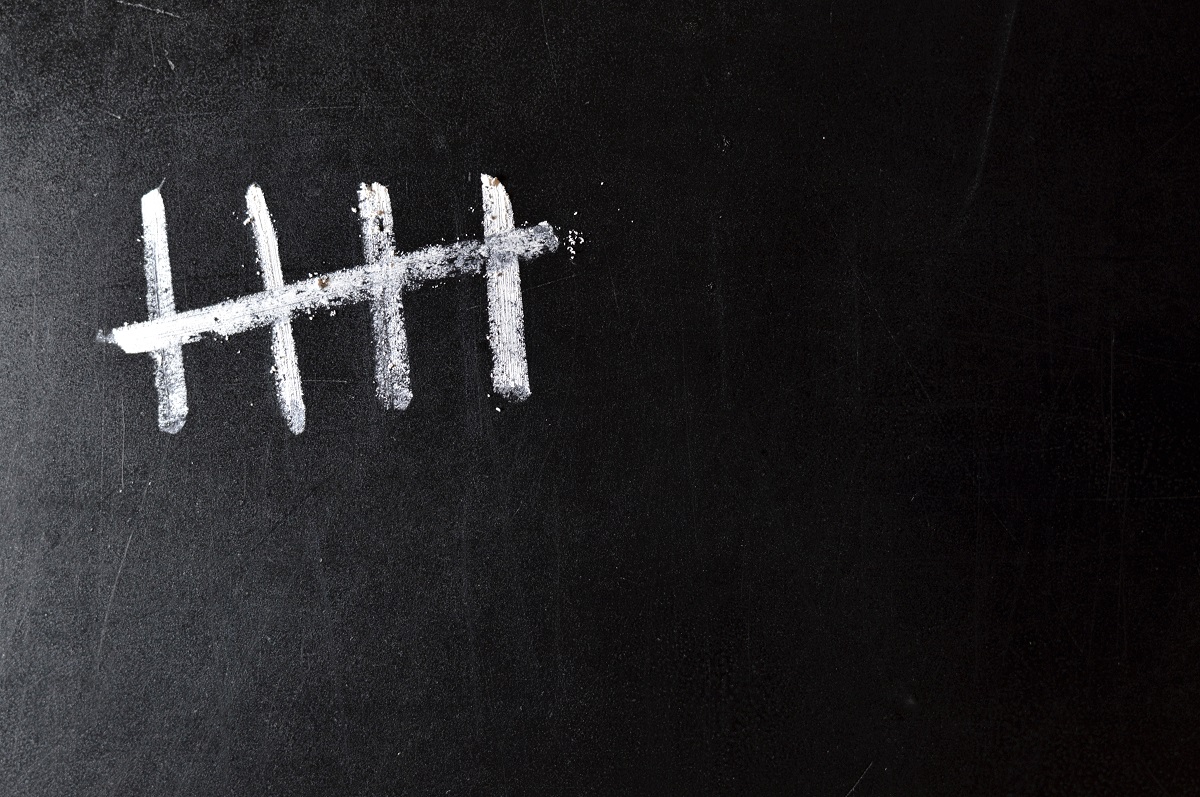
04 Oct Penalties For Drug Trafficking in Georgia
Table of Content
Without much research or knowledge, most people are well aware that controlled substances are both addictive and dangerous. When an individual chooses to consume or inject illegal controlled substances, he or she is willingly participating in risky behavior that could conclude in a number of ways, even death. Symptoms vary depending on the drug of choice, but, bottom line, no good comes from drugs.
What may not be as clear, are the penalties for drug trafficking. You may know that it is illegal to possess drugs and that if caught, you could face jail time. However, are you aware of just how much legal trouble you could get in for drug offense? Not only are jail and prison common penalties, but there are also expensive fines, as well as the difficult road ahead once released.
This article will educate you on drug trafficking laws in Georgia, showcasing that drug offense is serious and it comes with serious consequences. Simply put, no good can come from drugs—using, selling, possessing, or trafficking.
About Drug Trafficking Charges in Georgia
You do not have to consistently read the newspaper or watch the news to understand that the war on drugs has been going on for decades, and continues to plague states across the country, including the State of Georgia.
According to Georgia Drug Detox, throughout the past 10 years, the Georgia Bureau of Investigation (GBI) has actively been working to decrease the opioid epidemic in Georgia. And while there are new rules and regulations in place to sustain the issue, the problem remains at large.
Specifically, drug trafficking is often seen in areas that suffer from extreme poverty, as well as neighborhoods that do not offer much in the way of education or job opportunity. Unfortunately, as long as there is a need or want for drugs, then drug trafficking will continue to occur.
Georgia drug penalties are quite severe. Both drug trafficking and drug distribution charges are felony charges in the state, and the most serious criminal drug charges an accused individual can face. If found guilty of drug trafficking in Georgia, charges carry a mandatory minimum sentence and penalty, with fines that can reach up to $100,000.
A felony drug charge occurs when a person is found possessing any amount of a controlled substance, such as cocaine, heroin, methamphetamine, ecstasy or any other scheduled drug (Schedule I, II, III, IV, and V). This drug possession charge also takes place when prescription medication, such as OxyContin, Percocet, or Vicodin, ore obtained illegally. If there is an intent to distribute and not just have an actual possession, then the individual will face even more challenges.
When determining the length of imprisonment time and fees, various factors will be considered, including whether or not the individual has any prior drug conviction (and what they are), if they have other illegal drug paraphernalia, the specific amount of drugs found on the person, DUI penalties for those caught driving (generally losing your driving privileges via a suspended drivers license), the type of drug in question, and the area in which the person was discovered.
Typically, once charged with constructive possession, a sentence for illegal drug distribution and trafficking can generally range from three to five years to life in prison—depending on the factors listed above. It is a more serious drug crime to traffic or distribute than simply just possess them. Trafficking comes into play if the arresting law enforcement officer believes you have an intent to sell the drugs you are caught possessing.
The drug in question will have a big factor on the sentencing. For example, the penalty and fine for trafficking marijuana may be less than cocaine. Yet, getting caught with morphine or opium—including heroin—is worse than getting caught with cocaine or marijuana.
Georgia Drug Possession Laws And Charges
Marijuana Possession
In order to be charged with trafficking or distributing marijuana, the person often has to be found possessing more than 10 pounds. An amount greater than 10 pounds but less than 2,000 pounds carries with it a 5-year prison sentence. If caught with an amount of marijuana between 2,000 pounds but less than 10,000 pounds, there is a 7-year prison sentence. The minimum sentence for possessing more than 10,000 pounds of marijuana is 15 years in prison.
Cocaine Possession
If found with at least 28 grams of cocaine but less than 200 grams, there is a mandatory minimum sentence of 10 years. For quantities of at least 200 gram but less than 400 grams, there is a minimum sentence of 15 years. There is a minimum sentence of 25 years of jail time when found with more than 400 grams of cocaine.
Morphine Possession
A five-year minimum sentence is given when caught with 4 to 14 grams of morphine or opium. Quantities greater than 14 but less than 28 grams require a sentence of 10 years. If caught with a quantity greater than 28 grams, the sentence is 25 years in prison.
Not only does an individual have to worry about a prison sentence and expensive fines when being charged with drug trafficking, but also the consequences he or she will face once they have been released from imprisonment.
Once charged with a felony offense, it will be difficult to find a decent job and get any sort of credit. However, that is not to say that it cannot be done. A second chance is possible and can happen.
The Need for a Professional Attorney
If you or someone you know is facing drug trafficking charges, regardless of the drug, it is imperative to seek legal advice and find a professional attorney or law firm to help you, especially one who has experience with your type of drug case.
Most attorneys or law firms in the area offer a free consultation, in which you can detail your drug trafficking cases and meet with the lawyer to determine whether or not it is a good fit. The lawyer can advise you of your options, and offer you the best course of action to take. Remember, you are innocent until proven guilty.
A professional drug trafficking attorney with experience will be able to look at your case, and factor in whether or not the search and arrest happened legally. There may be factors involved like mental health and the way the police officer conducted the arrest that could lower your sentencing, or even get your drug case thrown out altogether. The point is to not fight alone.
Getting Treatment
Again, drug trafficking and drug abuse is a huge epidemic in Georgia. And while the state has taken precautions to end the drug war, keeping communities safe and drug-free, a problem still remains. It seems that the best way to end the epidemic is for those suffering from a drug problem to get help in the form of treatment. After all, without the need or demand for drugs, there would not be drug dealers.
Getting proper and professional treatment does not have to be difficult, and is possible—regardless of your circumstances. That is a misconception held by many. Whether or not you have insurance, whether or not you are financially stable, there are treatment options available for everyone.
The most important factor in regards to getting treatment is the addict wanting to get help, wanting to get better and have a different life. If an individual on drugs does not think they have a problem or does not want to better his or her life, then getting help or trying to get help would not be successful.
After it has been determined that the addict is going to rehab, finding the right rehab center is imperative. He or she should visit different centers, read reviews, meet with the staff, and if possible, talk with prior patients. Every rehabilitation facility offers something different, and the point is to find the center that is best for a person’s particular needs.
If a person is particularly in trouble but refuses to get help, then an intervention may need to take place. During this time, it will be necessary for family, friends, and loved ones to speak to the addict, but not judge or make orders. Simply put, he or she needs to understand the error of their ways, just how badly they are hurting themselves and the ones around them.
Remember, if they refuse to see the issue or do not want to get help, then, unfortunately, they cannot get help—not at this time, anyway.
Recognizing the Signs of an Addict
Do you think that someone you know and love is a drug addict? If so, it is important you are able to recognize the signs.
When a person makes the decision to get involved with drugs, he or she is setting themselves up for a long, difficult journey. Not only is health and bodily harm a concern, but there are also the legal ramifications, like those detailed above. The truth of the matter is, once a person starts using, they may be more inclined to start selling.
Therefore, if you see signs that someone may be involved with drugs, speak up.
Signs that an individual may be a drug addict can include the following:
-
- A difference in mood or attitude
-
- Change in appearance, mainly weight
-
- Lack of appetite
-
- Neglecting responsibilities
-
- Problems with relationships
-
- Legal troubles
-
- Bloodshot eyes
-
- Large pupils
-
- Change in sleep patterns
-
- Impaired speech or coordination
-
- Financial problems
-
- Unusual or unexplained hyperactivity or agitation
-
- Lack of motivation
Of course, you do not want to just randomly accuse someone of having a drug problem, simply because they have bloodshot eyes or have lost weight. Use your best judgment. Even then, you should never blame or judge someone, but have an open conversation with them. Let this individual know that you are genuinely worried, that you care for them, and you are there to provide help and comfort.
One possible way to try and get through to an addict is to inform him or her of the consequences. Remember, knowledge is power, so if the individual is made aware of the possible dangers of both using and selling drugs, he or she may be more inclined to get help.
Begin the conversation with health—drugs do nothing but deteriorate an individual’s body. From memory problems and confusion to organ failure and disease, a person on drugs is more prone to make a bad decision, which could ultimately have an irreversible or permanent effect on his or her life.
Further, there are the legal ramifications, as discussed throughout this article. Even though a person can move on from a felony charge, the procedure is not easy. Not to mention, who wants to waste a portion of their life behind bars? Therefore, try to inform your friend or loved one to get help now, before anything bad or worse can take place.
Avoiding Addiction
In order to help ensure you never become addicted to drugs, the following list has been created. Though easier said than done, the best way to avoid addiction is to not experiment with drugs in the first place. Most drugs are very easy to become addicted to, meaning once you try them just a few times, you are hooked.
Avoid addiction with these tips:
-
- Simply say NO—never accept or try a drug when it is offered to you
-
- Be mindful of whom you hang around or who is near you
-
- Avoid situations, people, and influences that involve any kind of drugs
-
- Manage your stress in a healthy manner, not with drugs
-
- Build strong, healthy relationships with people who have goals that mirror yours
-
- Have goals and never stop working to fulfill them
-
- If you consider using drugs, get help—remember, there is always help for everyone
-
- Be kind to yourself, and understand that if you make a mistake, you can get a second chance
Keeping an Open Mind
Watching a friend or loved one suffering from a drug addiction is extremely heavy and difficult. Whether they are using or selling—or both—the situation is hard. However, one way to try and keep a handle on it is to have an open mind.
Unfortunately, so many equate drugs with “being bad.” As in, if an individual is a drug user or seller, then he or she is a bad person. This is not true. Mistakes happen, and there is always the possibility of a second chance.
If you or someone you know needs help with substance abuse, do not wait. Get the help you need and deserve today. Find a rehabilitation center and start treatment, because the longer you wait, the more damaging and addictive drugs can become.
Sources:
Robinson, Lawrence. “Drug Abuse and Addiction.” Nov. 2018. 4 March 2019. https://www.helpguide.org/articles/addictions/drug-abuse-and-addiction.htm
“Drug Trafficking in Georgia.” 6 May 2018. 4 March 2019. https://georgiadrugdetox.com/news/drug-trafficking-georgia/
“Drug Trafficking Consequences in Georgia.” Bixon Law. 28 Aug. 2018. 4 March 2019. https://bixonlaw.com/drug-trafficking-consequences-georgia/






No Comments